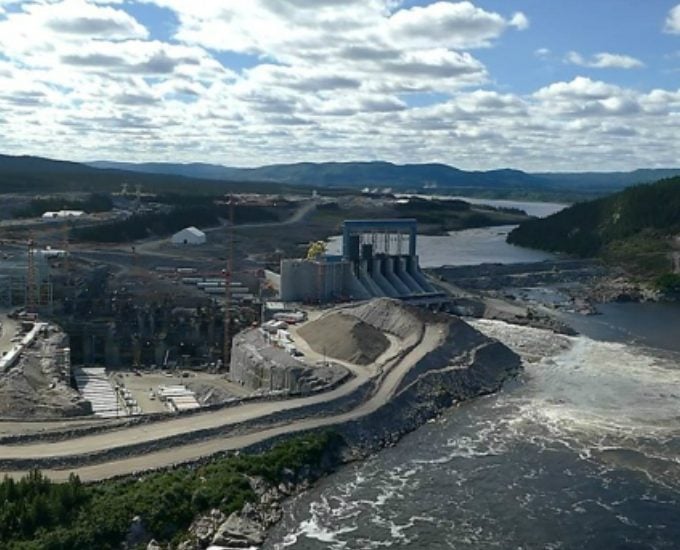
KJIPUKTUK (Halifax) – The Ecology Action Centre (EAC) wants Nova Scotia to stop using coal to generate energy, and use renewable sources instead.
A couple of days ago the organization launched a report that shows how that can be accomplished by 2030, mostly by leveraging wind and hydroelectricity, and increasing energy efficiency efforts.
Some of that hydroelectricity is to be imported from Quebec, using a new transmission line, and the remainder is to arrive here from Muskrat Falls in Labrador, via the Maritime Link.
That’s the same Muskrat Falls project that stands to poison country food downstream with methylmercury, that has flooded Indigenous lands without consent, and where an important project component, the North Spur, has not been proven stable and has local people worried about their safety.
Many Indigenous people have protested the project at great personal costs.
See also: Trouble in the colonies: three Muskrat Falls land defenders jailed
The EAC report starts with a wonderful land acknowledgement.
“The work of moving forward with low-carbon solutions in Nova Scotia take place on unceded, unsurrendered Mi’kmaw territory that is governed by Treaties of Peace and Friendship. All work toward the transition to a low-carbon future on this land must take place in the spirit of these treaties and in collaboration with the Mi’kmaq of Nova Scotia, and with the free, prior and informed consent of Mi’kmaw communities.”
Unfortunately these lofty principles don’t apply to Indigenous peoples in faraway Labrador. The problematic nature of the Muskrat Falls project doesn’t even get a mention in the report.
Another EAC report published in September, this one on green jobs, was equally silent on the dark side of Muskrat Falls.
I understand that the need to decarbonize is necessary and urgent. But at what cost?
Looking the other way isn’t going to get us an answer to that question.
See also: Weekend video: In the shadow of the dam
With a special thanks to our generous donors who make publication of the Nova Scotia Advocate possible.
Subscribe to the Nova Scotia Advocate weekly digest and never miss an article again. It’s free!




Surprising since EAC has written much about its quest to build trust withe Mi’kmaq Nations. Guess Mushau Innu areoff their radar but there was a film and discussion at the Central Library a couple of years ago with many Innu citizens educating a large Halifax audience on their plight re Muskrat Falls.